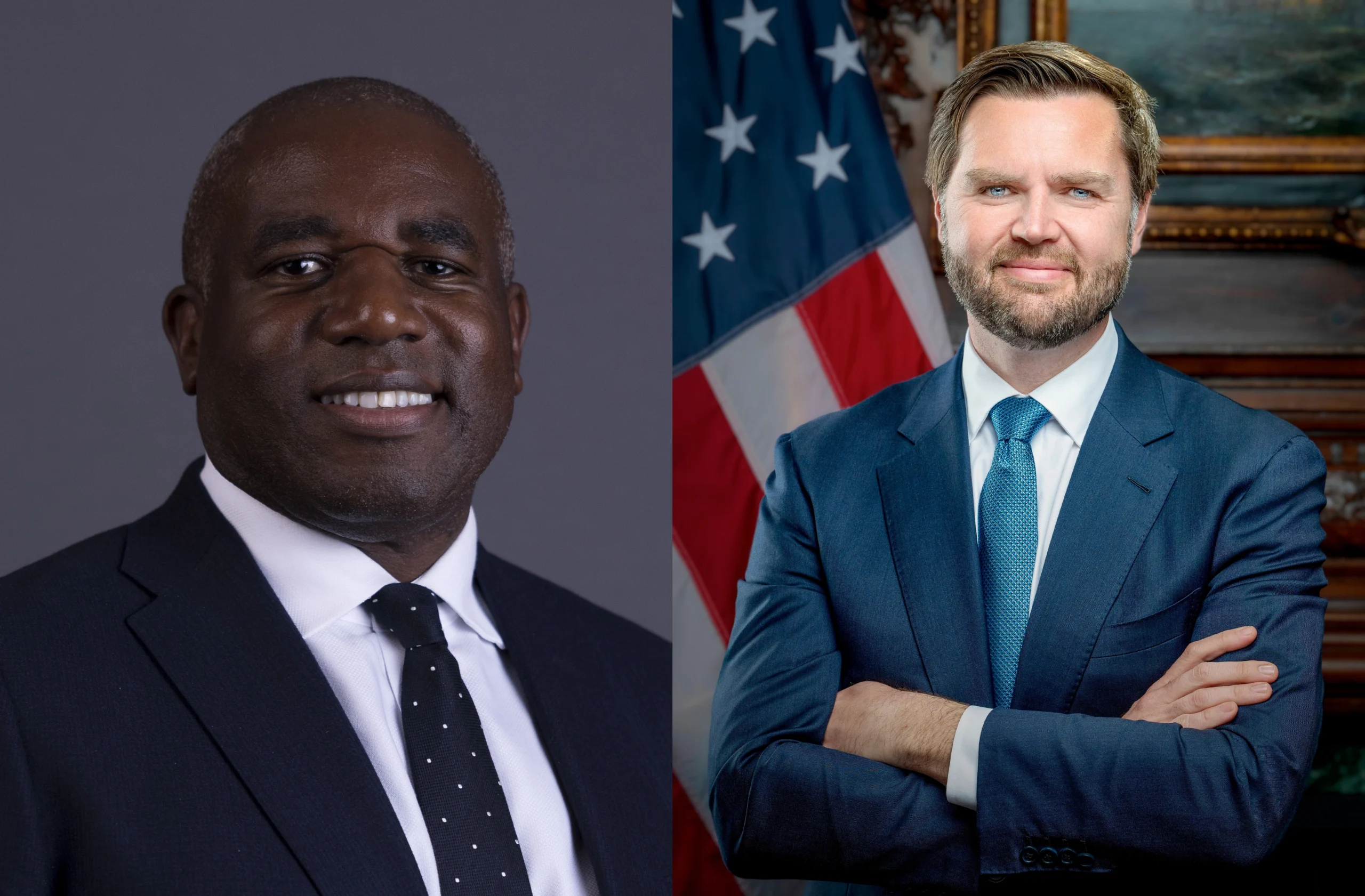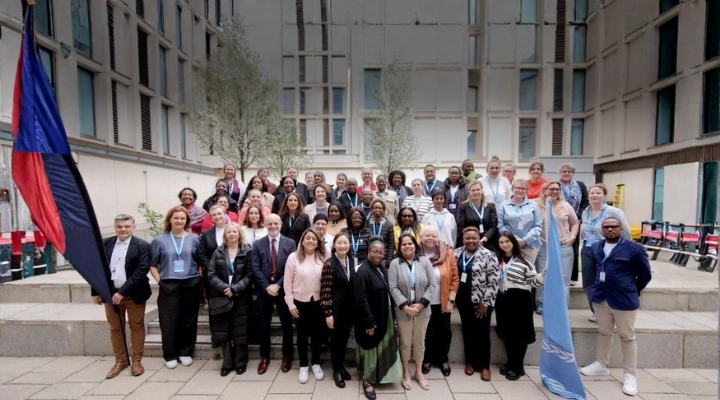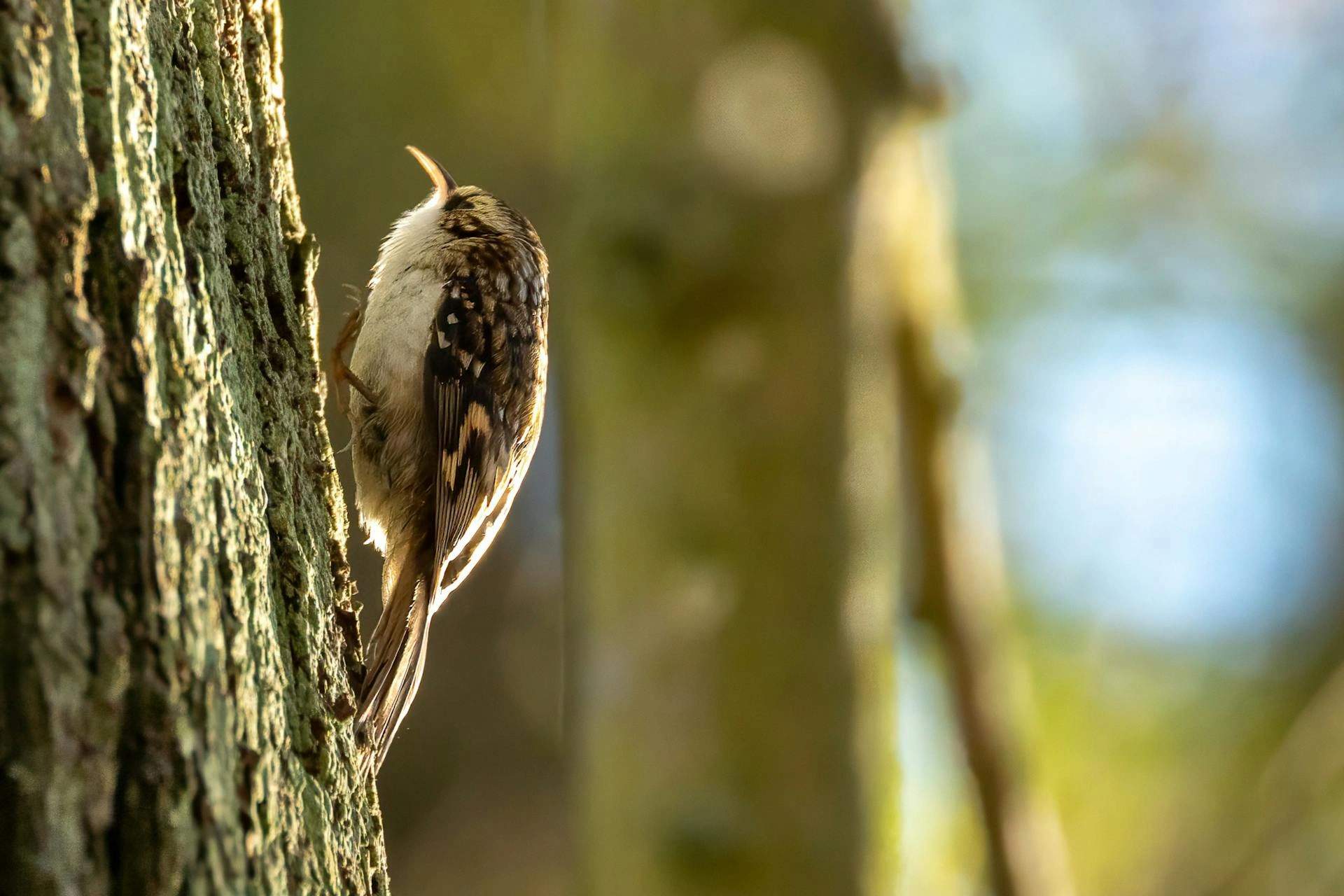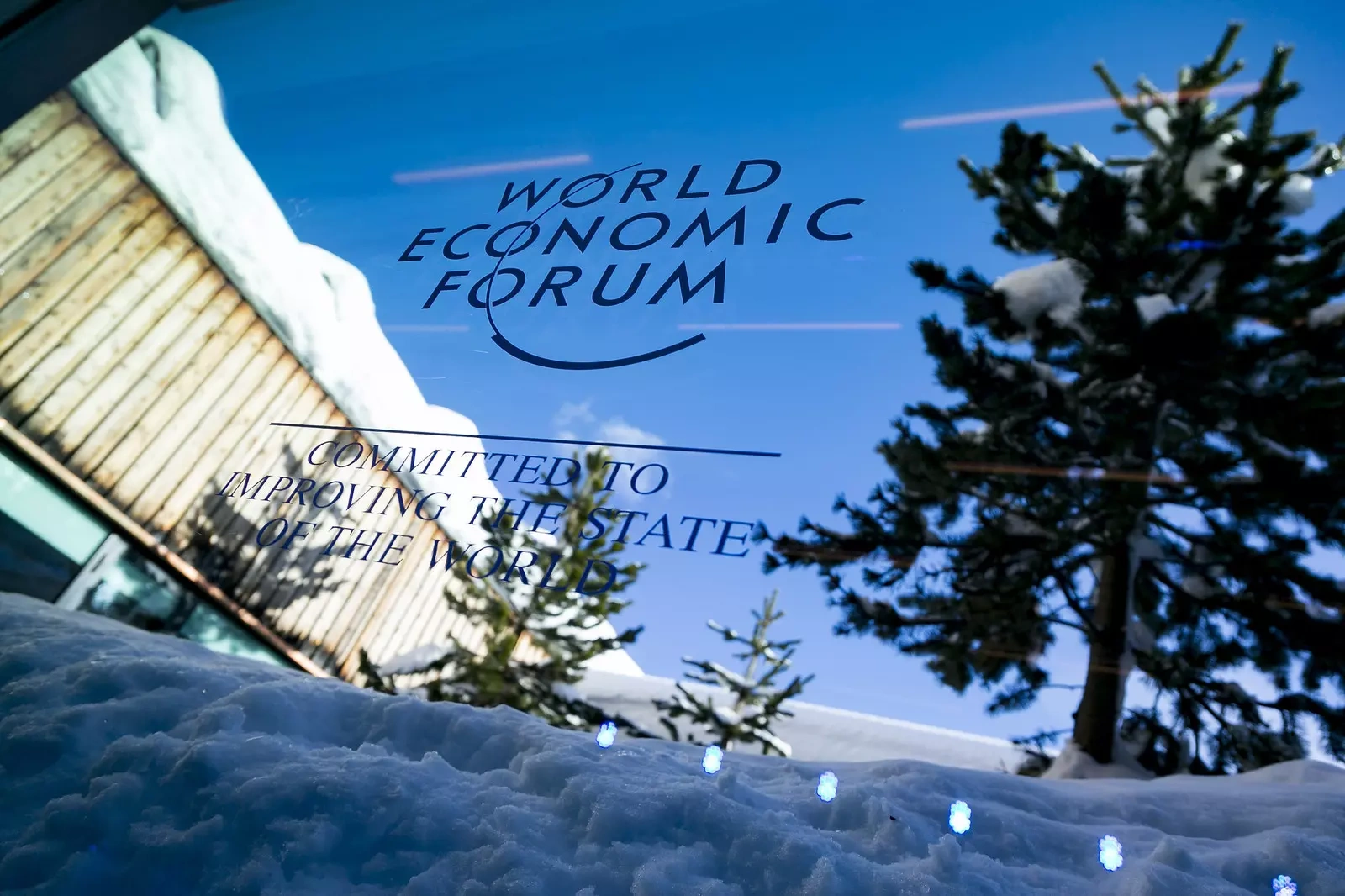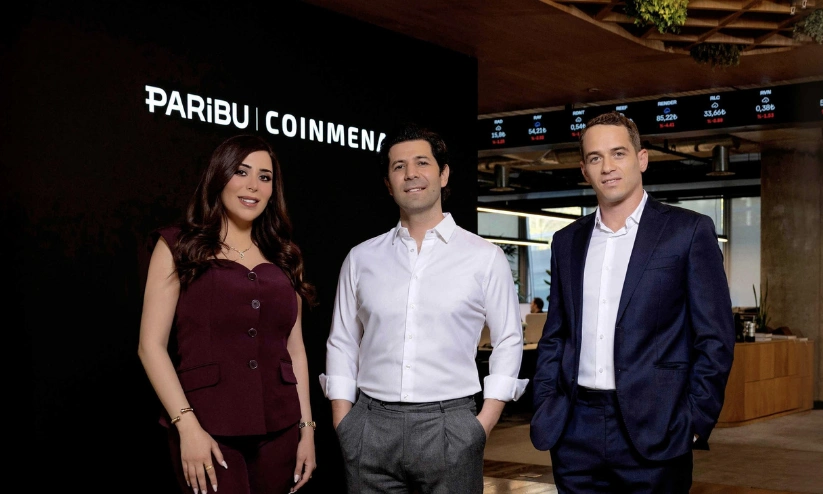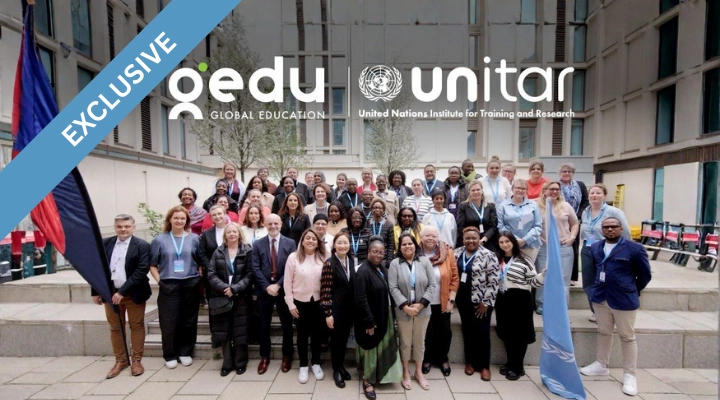The dodo delusion: why Colossal’s ‘de-extinction’ claims don’t fly

Professor Tim Coulson
- Published
- Opinion & Analysis, Science
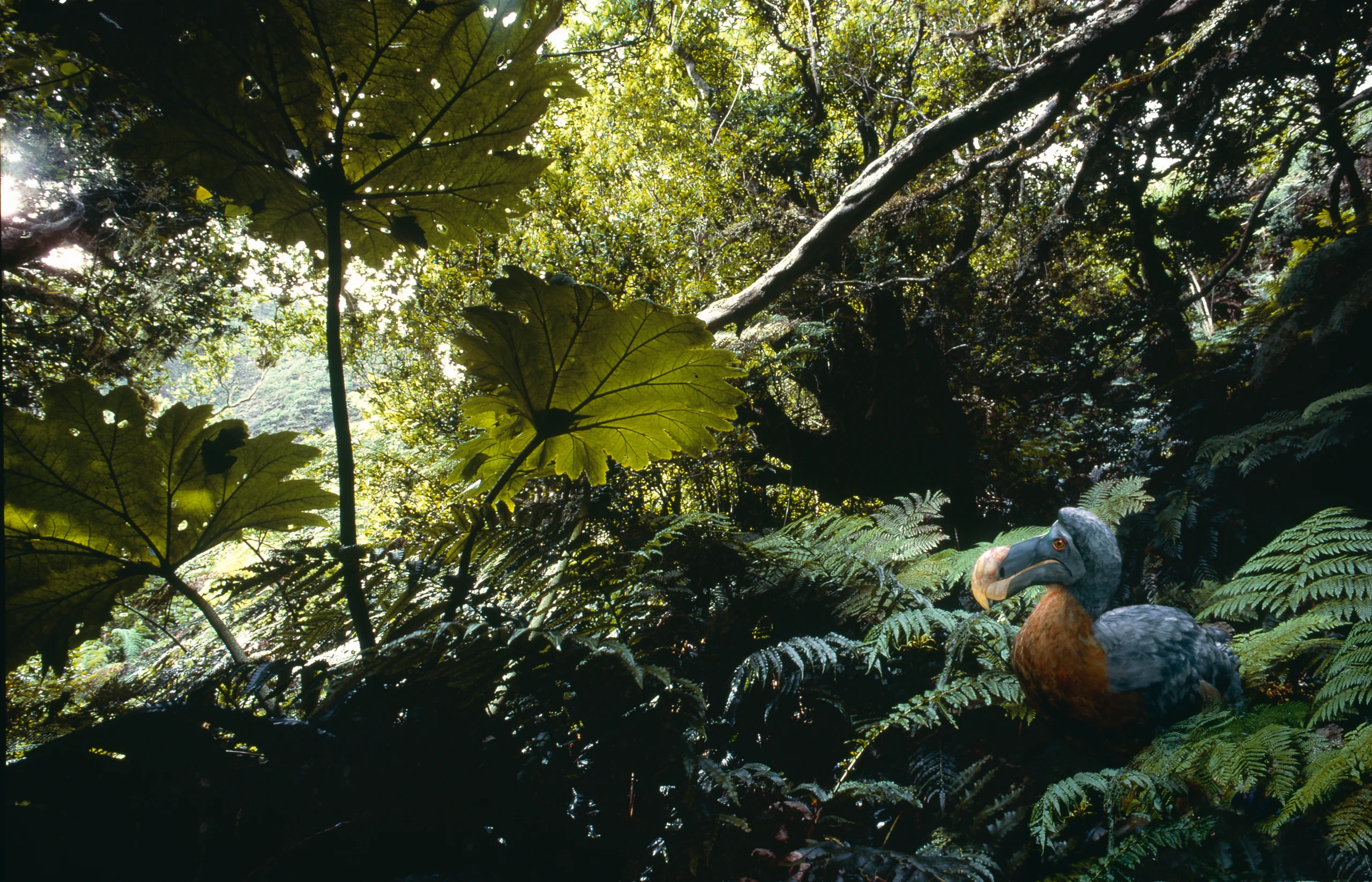
From “dire wolves” engineered from grey wolves to bold claims of reintroducing dodos to Mauritius within a decade, Texan biotech company Colossal has drawn widespread media coverage. But Oxford biologist Tim Coulson argues that the science behind de-extinction is far more limited, and the obstacles so great that bringing back lost species may remain impossible
In 1973, a team led by Stanley Cohen took some frog DNA and inserted it into the genome of the bacterium E. coli. It was the first successful transfer of a gene from one species into another. Cohen, a geneticist and one of the pioneers of recombinant DNA technology, did not call the mutant bacteria, ‘frog’.
A few years later, in 1980, a team led by the American molecular biologist Jon Gordon reported how segments of the herpes simplex virus were incorporated into mice. Gordon did not call his mutant mice, ‘herpes viruses’.
But in 2025, a team from the Texan biotech company Colossal inserted a small amount of dire wolf DNA into grey wolves. It did call the mutant grey wolves, ‘dire wolves’.
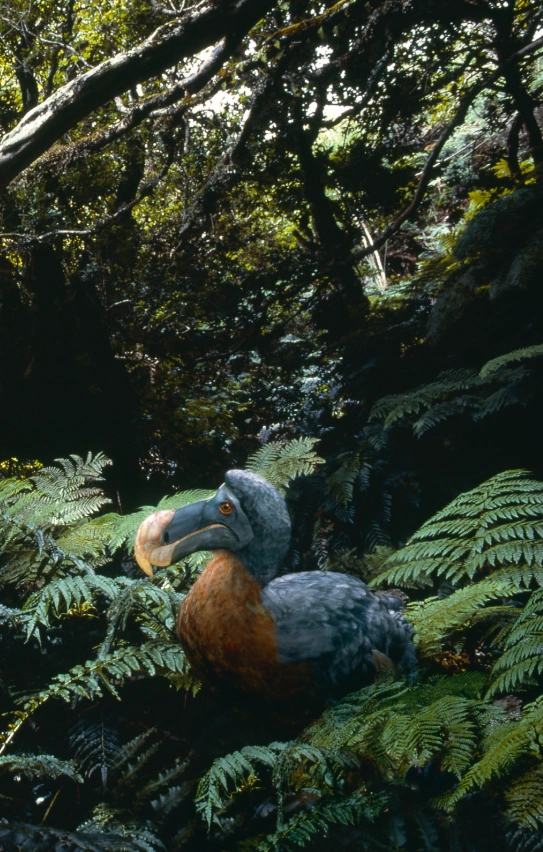
The research Colossal conducted was impressive. It brought a small amount of dire wolf DNA back from the grave and, once that DNA was incorporated into the genome of grey wolf embryos, development was altered so that the mutant pups displayed a few characteristics resembling those of dire wolves. But Colossal had far from “de-extincted” the predator.
Colossal is once again making headlines. And once again the company is over-egging what its latest breakthrough means. The firm clearly learned from its dire wolf marketing success story and has returned to the same playbook. It has now successfully cultured pigeon germ cells in the laboratory, which is an impressive scientific feat. But Colossal has reported this breakthrough by saying it expects to de-extinct the dodo within a decade and will populate part of Mauritius with thousands of these beasts. Members of the evolutionary biology community have, predictably, responded with a collective “Oh no they won’t!” And thus, the pantomime rolls on, drawing in scientists like me to write yet more articles about it.
The reason that experts are confident that Colossal will fail to de-extinct the dodo is that there are many techniques, several of which are currently impossible, which would need to be successfully implemented to bring an extinct species of animal back to life. The starting point would always need to be a highquality genome of the extinct animal. Producing high-quality genomes from recently extinct species is possible, and Colossal has said on its website that it has one for the dodo, but it is yet to publish it.
The next step would be to create a cell nucleus that would contain the dodo’s genome, separated into chromosomes. Scientists are currently unable to do this, and, given the many challenges in delivering this breakthrough, it is optimistic to imagine it will be solved within a decade.
The extinct animal’s cell nucleus would then need to be swapped with the nucleus in a cell of a related species, likely the Nicobar pigeon in the case of the dodo. This is something that scientists do know how to do. The cell would then need to be coerced into developing into an embryo.
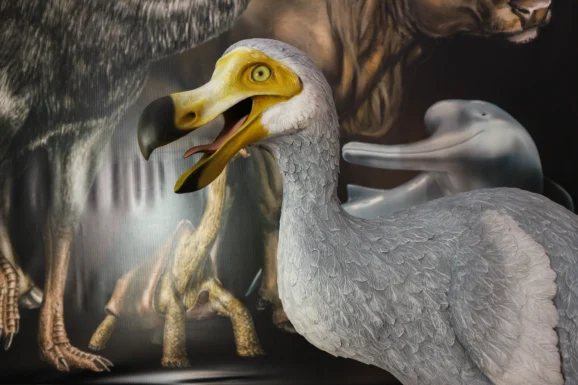
Writing in The Conversation, the Oxford-based biologist Rich Grenyer characterised this behaviour as “like claiming to have brought Napoleon back from the dead by asking a short French man to wear his hat.”
Grenyer was not the only biologist debunking Colossal’s exaggerated dire wolf “de-extinction” announcement. Many took to social media and the press to denounce the claim, which most found outrageous. The company got a lot of free marketing, which is likely to have contributed to a recent healthy valuation of $10.2BN and a successful round of additional fundraising.
Following the tranche of evolutionary biologists disputing Colossal’s claim, the company’s Chief Scientific Officer, Beth Shapiro, did soften her position a little, being more precise in her assessment of what the company had achieved.
And here lies the biggest problem.
Evolution involves not just changes in a genome, but also in the way that genes work in conjunction with other parts of the cell as embryos develop. Even if you could create the right sort of surrogate cell with a swapped-in dodo genome, the chances of it surviving to hatching are vanishingly small. Embryo development is a staggeringly complex biological process. A high-quality genome is just the first, and arguably the easiest, step.
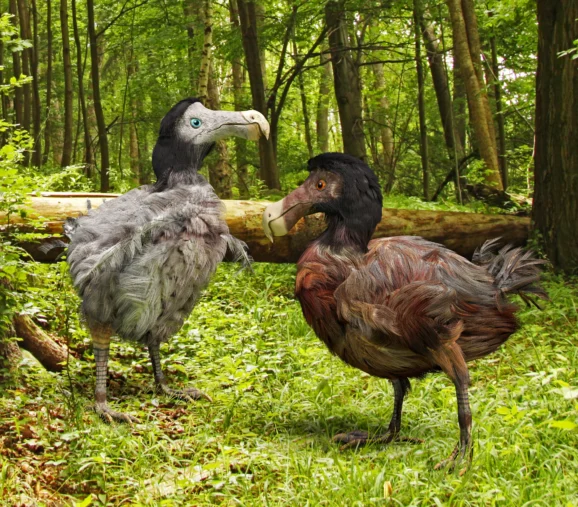
Because these problems remain unsolved, Colossal is focusing on tweaking the genomes of living species so that they develop to have some characteristics that superficially look like those of a related extinct species. What Colossal is aiming to do is to produce large-bodied, flightless pigeons with a big beak that look a little like dodos. The recent breakthrough it reported — the ability to culture primordial pigeon germ cells (cells that develop into sperm and eggs) in the laboratory — means that if it now inserts a little bit of dodo DNA into these cells, some of them might produce mutants that resemble the extinct bird.
Resemblance does not mean the mutant pigeon will behave like a dodo or fulfil the ecological roles that dodos once did in Mauritius. The dodo was a very different bird to its closest living relative. The dodo could not fly, while the Nicobar pigeon is excellent at flying between islands. The dodo had no predators, which means it likely lived at high density and had a low metabolic rate. The Nicobar pigeon encounters predators on many of the islands it colonises, is relatively rare, and has a high metabolic rate. The dodo appears to have been excellent at storing large amounts of fat, presumably to help it survive periods when food was scarce, something the Nicobar pigeon does not do well. Even if you make a Nicobar pigeon large, and give it a dodo’s beak, there is no guarantee it will be able to use the beak in the same way a dodo did.
In short, a genetically edited extant pigeon is far from being a dodo.
The scientists at Colossal are not stupid. Its CSO, Beth Shapiro, had a stellar career as a professor at the University of California before moving to Colossal. To be a great scientist you must be imaginative in generating ideas, cautious in interpreting evidence that supports or refutes your hypothesis, and honest in communicating these ideas to the public. You earn credibility by doing this. Shapiro earned her well-deserved reputation as a scientist by doing all these things. But scientific reputation is hard to earn and easy to lose. If any scientist over-exaggerates findings, they risk damaging their scientific credibility, particularly when refutation is easy.
Scientific principles of caution can clash with corporate objectives, because companies seeking additional funding or a higher share price may be tempted to over-egg their research progress. The most famous recent example of this comes from Theranos, a company that claimed it could deliver thousands of diagnoses from a single drop of blood — something science is not yet capable of achieving. Those claims collapsed under scrutiny, and the company’s founder, Elizabeth Holmes, was later convicted of fraud.
Theranos and Colossal are very different companies, and there is no evidence that Colossal has committed any crime of fraud. But both companies had a vision that is scientifically extraordinarily difficult to deliver.
Colossal is a ‘de-extinction company’, and bringing species back from the dead is a highly marketable idea. I would love to see dire wolves, dodos, and woolly mammoths living in restored ecosystems that they are adapted to live in. I wish we could bring back giant ground sloths and sabretoothed cats and give them a home where they could thrive.
The difficulty is that the number and scale of challenges make true de-extinction potentially impossible.
Beyond the scientific hurdles of bringing an extinct animal back, there is also the problem that we no longer have suitable habitats for them. We have altered the Earth so profoundly in the last few centuries that even the ecosystems recently inhabited by extinct animals no longer exist. And much like the extinct species themselves, we do not really know how to bring back these lost ecosystems.
Of course, de-extinction would be part of the process of restoring lost ecosystems, but so too would be removing invasive species and modernday diseases that may be lethal to animals from the past. We would also need to reverse any land use changes that may have happened. For some of these ecosystems to function, we would also need to reverse recent climate change. I think we should at least try to create some of these lost ecosystems before trying to bring back lost species to live in them.
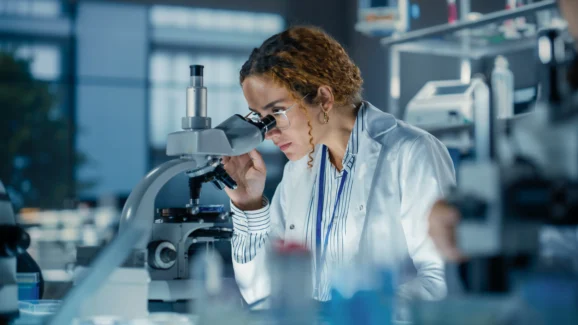
Colossal’s attractive de-extinction vision is sadly fraught with scientific challenges that are likely to remain unsolved for decades to come. There are also significant animal ethics issues of bringing long-dead species back to life. It is probable that the science that Colossal is doing will lead to breakthroughs that have commercial promise outside the de-extinction realm, and perhaps that is why many investors have flocked to invest in the company. But this does not help explain why Colossal markets its scientific breakthroughs as “de-extinction”. I wish the company would be more measured in its marketing, because the science it is doing is valuable, even if it falls short of the impossible dream of seeing dire wolves hunting woolly mammoths in the western United States or catching a glimpse of a dodo in the forests of Mauritius.

Professor Tim Coulson is a biologist at the University of Oxford, where he has led both the Zoology and Biology departments. He was previously professor of Population Biology at Imperial College London and has held positions at Cambridge University and the Institute of Zoology London. A highly decorated scientist with awards from major institutions including the Royal Society, he has edited leading journals and served on Government advisory boards. His first book for general readers, “A Little History of Everything” (Penguin Michael Joseph), traces the 13.8-billion-year story from the Big Bang to human consciousness and is available to buy on Amazon. He is also cohost of the popular science podcast, Science of the Times
READ MORE: ‘Drive your own safari: why Kruger is Africa’s most accessible wildlife park‘. With low malaria risk, wide-open roads and wildlife in abundance, now is the ideal time to visit South Africa’s Kruger National Park. Biologist and author Professor Tim Coulson, a near-annual visitor, reveals why this vast, self-drive reserve remains one of Africa’s most accessible — and rewarding — safari destinations
Do you have news to share or expertise to contribute? The European welcomes insights from business leaders and sector specialists. Get in touch with our editorial team to find out more.
Sign up to The European Newsletter
RECENT ARTICLES
-
 The European Winter 2026 edition - out now
The European Winter 2026 edition - out now -
 Parliament invites cyber experts to give evidence on new UK cyber security bill
Parliament invites cyber experts to give evidence on new UK cyber security bill -
 EU sustainability rules drive digital compliance push in Uzbekistan ahead of export change
EU sustainability rules drive digital compliance push in Uzbekistan ahead of export change -
 AI boom triggers new wave of data-centre investment across Europe
AI boom triggers new wave of data-centre investment across Europe -
 Lammy travels to Washington as UK joins America’s 250th anniversary programme
Lammy travels to Washington as UK joins America’s 250th anniversary programme -
 China’s BYD overtakes Tesla as world’s largest electric car seller
China’s BYD overtakes Tesla as world’s largest electric car seller -
 FTSE 100 posts strongest annual gain since 2009 as London market faces IPO test
FTSE 100 posts strongest annual gain since 2009 as London market faces IPO test -
 Five of the biggest New Year’s Eve fireworks happening tonight — and where to watch them
Five of the biggest New Year’s Eve fireworks happening tonight — and where to watch them -
 UK education group signs agreement to operate UN training centre network hub
UK education group signs agreement to operate UN training centre network hub -
 Cornwall project to open new UK test airspace for drones and autonomous aircraft
Cornwall project to open new UK test airspace for drones and autonomous aircraft -
 Birding tourism market set for rapid growth through 2032, report finds
Birding tourism market set for rapid growth through 2032, report finds -
 Luxury travel market set to more than double by 2035 as older, wealthier travellers drive demand
Luxury travel market set to more than double by 2035 as older, wealthier travellers drive demand -
 UK and South Korea finalise upgraded free trade agreement
UK and South Korea finalise upgraded free trade agreement -
 Trump lawsuit against BBC raises questions over legal pressure on European public broadcasters
Trump lawsuit against BBC raises questions over legal pressure on European public broadcasters -
 UK government sets up Women in Tech taskforce amid gender imbalance concerns
UK government sets up Women in Tech taskforce amid gender imbalance concerns -
 Mycelium breakthrough shows there’s mush-room to grow in greener manufacturing
Mycelium breakthrough shows there’s mush-room to grow in greener manufacturing -
 Marriott strengthens South African portfolio with new Autograph Collection hotel in Cape Town
Marriott strengthens South African portfolio with new Autograph Collection hotel in Cape Town -
 Oxford to host new annual youth climate summit on UN World Environment Day
Oxford to host new annual youth climate summit on UN World Environment Day -
 Countdown to Davos 2026 as Switzerland gears up for the most heated talks in years
Countdown to Davos 2026 as Switzerland gears up for the most heated talks in years -
 Paribu buys CoinMENA in USD 240m deal as regional crypto markets consolidate
Paribu buys CoinMENA in USD 240m deal as regional crypto markets consolidate -
 AI innovation linked to a shrinking share of income for European workers
AI innovation linked to a shrinking share of income for European workers -
 African airspace overhaul set to shorten flight times for European travellers
African airspace overhaul set to shorten flight times for European travellers -
 Exclusive: Global United Nations delegates meet in London as GEDU sets out new cross-network sustainability plan
Exclusive: Global United Nations delegates meet in London as GEDU sets out new cross-network sustainability plan -
 Fast fashion brands ‘greenwash’ shoppers with guilt-easing claims, study warns
Fast fashion brands ‘greenwash’ shoppers with guilt-easing claims, study warns -
 Europe’s shrinking middle class is turning to the radical right, new study suggests
Europe’s shrinking middle class is turning to the radical right, new study suggests




